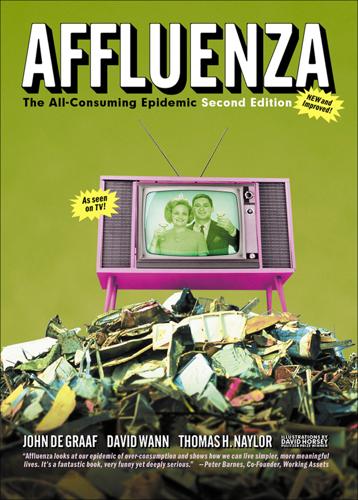
Affluenza: The All-Consuming Epidemic
by
John de Graaf
,
David Wann
,
Thomas H Naylor
and
David Horsey
Published 1 Jan 2001
The earliest of Jesus’s disciples and believers lived in simple communities where they shared all things in common and preached that “the love of money is the root of all evil.” “I think one of the most riveting passages in the New Testament is where Christ warns about Mammon, which is the power of wealth, the power of money,” says Dr. Richard Swenson, a physician who lectures widely in evangelical churches. “Christ says you cannot serve both God and Mammon. He didn’t say it’s hard, it’s difficult, it’s tricky. He said it’s impossible.”10 In fact, one of Jesus’s final public acts was a stinging rebuke to the affluenza that had begun to permeate his society. By chasing the money-lenders from the temple and overturning their tables, he challenged physically (one might even say, violently) a profane commercialism that had crept into even the holiest of places.
…
John’s favorite ad mocks no real product but shows a handsome young businessman who says he’s one of many who are turning to “Mammon,” because “I want a religion that doesn’t complicate my life with unreasonable ethical demands.” It’s an obvious play on Christ’s declaration that “you cannot serve both God and Mammon.” “We’re not the biggest player in the spiritual arena, but we’re the fastest growing,” the Mammon anti-ad declares. It’s a subtle but powerful reminder of the decline of true spirituality in the Age of Affluenza. Perhaps the most successful of Adbusters’ parodies were its anti-smoking ads. In one of them, two Marlboro Man-type cowboys ride side by side in the sunset.
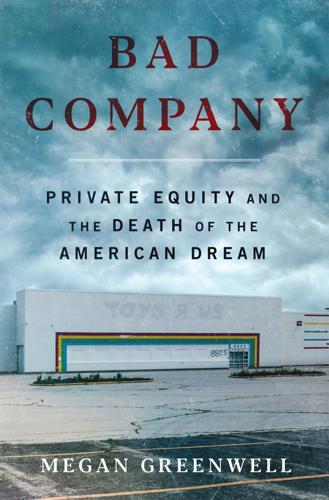
Bad Company
by
Megan Greenwell
Published 18 Apr 2025
Cofounder John Thornton framed the move toward nonprofit journalism as a moral imperative: “The apostles Peter and Luke both admonish against that most common of human frailties—the allure of attempting to serve God and Mammon simultaneously. From roughly 1960 to about the middle of this decade, newspaper publishers seemed to think they had managed somehow to roll this dictate back,” he wrote a few months before the Tribune’s official debut. “With newspaper margins now plunging into the single digits on a very large base of (largely leveraged) capital, nobody is talking about public service nearly as much as paying the bills. When it comes to the news business, God and Mammon are no longer BFFs.” Thornton was hardly a foe to the finance world—he had made his fortune in venture capital and would go on to start a private equity firm investing in tech companies.
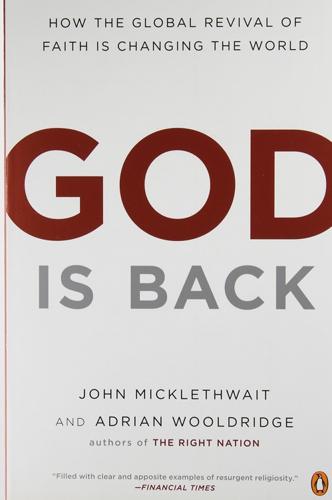
God Is Back: How the Global Revival of Faith Is Changing the World
by
John Micklethwait
and
Adrian Wooldridge
Published 31 Mar 2009
THE NOT-SO-SHINING CITΥ From the very beginning America was an unusual mixture of the religious and the secular. Some of the first settlers were religious zealots, fleeing from persecution; some were businessmen, bent on making money; and still others were a combination of the two, worshipping God and Mammon at the same time (and, in Max Weber’s view, worshipping Mammon all the more successfully because they worshipped God). The hundred or so settlers who alighted from the May flower at Plymouth Harbor were certainly zealots. They had fled England, first for the Netherlands and then for America, because of theological quarrels; and they worked hard to organize their lives according to scripture.2 The death penalty awaited not just murderers but also witches, heretics, adulterers and sodomites.
…
Every year ten thousand to twelve thousand delegates converge on the city to attend the SBC’s annual convention, the largest in the country. The city also houses the SBC’s huge commercial arm, LifeWay Christian Resources, whose building sports a 108-foot-tall cross. Appropriately enough, the Southern Baptist Convention building is situated on Commerce Street. Nashville is the place where God and Mammon happily coexist. Some of the religious businesses are service businesses catering to the local faithful: 7 percent of the city’s business travelers are part of faith-based groups. But, as with country music, Nashville produces most of its religion business for export. Nashville is America’s biggest religious publishing center, producing more Bibles than any other city in the world, largely thanks to Thomas Nelson.
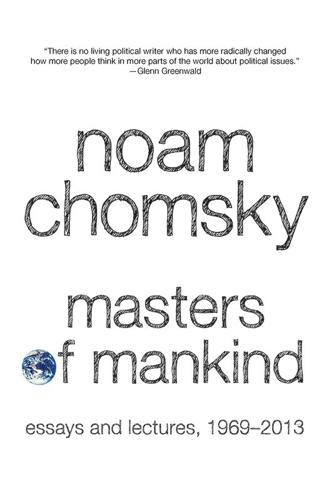
Masters of Mankind
by
Noam Chomsky
Published 1 Sep 2014
How would we react if the Luftwaffe named its lethal weapons “Jew” and “Gypsy”? The British record is much the same. Britain pursued its divine mission in the evangelization of Africa, while exercising in India “a trusteeship mysteriously placed in their hands by Providence,” easy to comprehend in a country “where God and Mammon seemed made for each other.”10 Figures of the highest moral integrity and intelligence gave a secular version of the creed, strikingly John Stuart Mill in his extraordinary apologetics for British crimes, written just as they peaked in India and China, in an essay now taken to be a classic of the literature of “humanitarian intervention.”
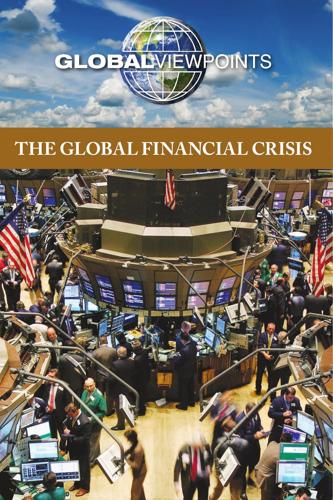
Global Financial Crisis
by
Noah Berlatsky
Published 19 Feb 2010
Wall Street is hardly superior when it comes to generosity and detachment from worldly goods. We need simpler rules, ones that tackle the real issues. But more than rules, we need personal conversion. The apostle Paul identified the issue 2,000 years ago: the love of money is the root of all evils (1 Timothy 6: 10). He concurred with Jesus, who said, You cannot serve God and mammon [wealth or greed personified] (Matthew 6: 24). The goods of this world are good. But we have to pursue them in the right order, guided by love of God and neighbor. It applies to personal life and it applies to finance. Wisdom 30 Causes of the Global Financial Crisis shuns greed. Prudence depends on the moral virtues, as Aristotle taught.
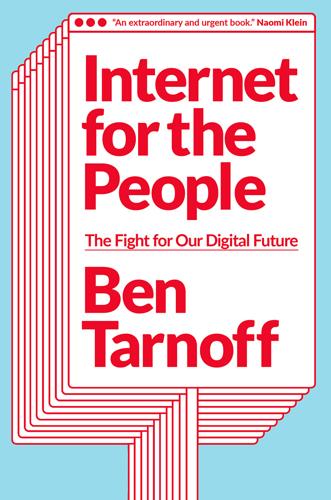
Internet for the People: The Fight for Our Digital Future
by
Ben Tarnoff
Published 13 Jun 2022
The company would observe user behavior in order to try to predict user behavior. If Google began as an attempt to interpret the abundant information of the web, its commercial viability would rest on interpreting the abundant information of its users. The beauty of the arrangement is that it served both God and Mammon, which is to say, both Google’s founders and investors. The quality score helped soften Page and Brin’s antipathy to advertising, because it ensured that even a deep-pocketed advertiser couldn’t flood the site with spam. There were guardrails. But these same guardrails also guided users to ads they were more likely to click on, which pleased advertisers.
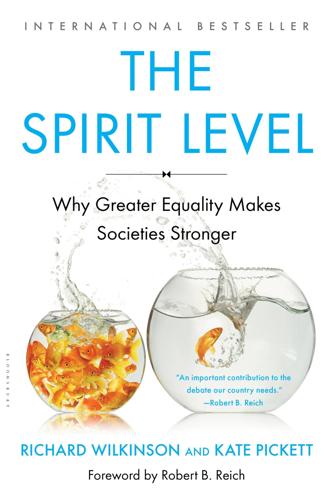
The Spirit Level: Why Greater Equality Makes Societies Stronger
by
Richard Wilkinson
and
Kate Pickett
Published 1 Jan 2009
At the other extreme is mutual interdependence and co-operation, in which each person’s security depends on the quality of their relationships with others, and a sense of self-worth comes less from status than from the contribution made to the wellbeing of others. Rather than the overt pursuit of material self-interest, affiliative strategies depend on mutuality, reciprocity and the capacity for empathy and emotional bonding. In practice, of course, god and mammon coexist in every society and the territory of each varies depending on the sphere of life, the economic system and on individual differences. EARLY EXPERIENCE So different are the kinds of society which humans have had to cope with that the processes which adapt us to deal with any given social system start very early in life.

I Never Knew That About London
by
Christopher Winn
Published 3 Oct 2007
The Monument Monumental THE MONUMENT RISES above Fish Hill, close to where the Roman bridge came ashore and where London began. The view from the top is awe-inspiring. All around, a forest of spires and towers and turrets thrust upwards, striving for the light, a perfect metaphor for the struggle between God and Mammon. The godly spires more than hold their own, even as the towers of commerce grow ever higher and bolder. The writer James Boswell came here in 1762 to climb the 311 steps to what was then the highest viewpoint in London. Half-way up he suffered a panic attack, but he persevered and made it to the top, where he found it ‘horrid to be so monstrous a way up in the air, so far above London and all its spires’.
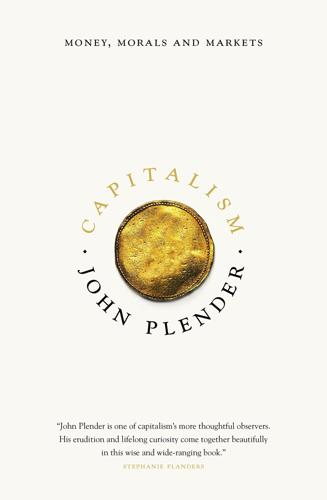
Capitalism: Money, Morals and Markets
by
John Plender
Published 27 Jul 2015
As for finance, he declared that ‘of all the modes of getting wealth this is the most unnatural’ – a sentiment that resonates down the ages in the light of recurring financial crises.3 Then came the New Testament, with its low view of worldly goods and its uncompromising assertion that it was impossible to serve both God and Mammon. Jesus had no time for the rich, suggesting that it was well-nigh impossible for them to enter the kingdom of heaven. And then, of course, there was the apostle Paul, that terrible old curmudgeon, who launched the definitive anti-materialist assault in his letter to Timothy, where he declared that the love of money was the root of all evil.
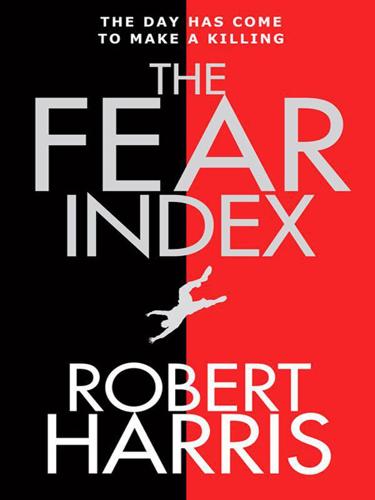
The Fear Index
by
Robert Harris
Published 14 Aug 2011
He seemed on the point of tears. ‘Dear guests, we are honoured by your presence, by your friendship, and by your trust. I truly believe we are present at the birth of a whole new force in global asset management, the product of the union of cutting-edge science and aggressive investment – or, if you prefer, of God and Mammon.’ More laughter. ‘At which happy event, it seems to me only right that we should stand and raise our glasses to the genius who has made it possible – no, no, not to me.’ He beamed down at Hoffmann. ‘To the father of VIXAL-4 – to Alex!’ With a scrape of chair legs, a chorus of ‘To Alex!’ and a peal of clinking cut glass, the investors stood and toasted Hoffmann.
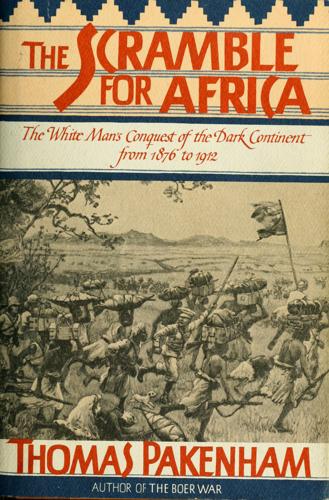
The scramble for Africa, 1876-1912
by
Thomas Pakenham
Published 19 Nov 1991
Britain had pioneered the exploration and evangelization of Central Africa, and she felt a proprietary right to most of the continent. Besides, there was a vital interest at stake for Britain. As the only great maritime Empire, she needed to prevent her rivals obstructing the steamer routes to the East, via Suez and the Cape. That meant digging in at both ends of Africa. And it was in Protestant Britain, where God and Mammon seemed made for each other, that Livingstone’s words struck the deepest chord. The ‘3 cs’ would redeem Africa. That was not the way Africans perceived the Scramble. There was a fourth ‘c’ – conquest – and it gradually predominated. At first European expeditions were too weak to challenge African rulers.
…
If the main IAA was to be a front for King Leopold and the Belgians, why should the French committee not be a front for the French? At that time the French committee did not know what to think, their loyalties were so divided. Imagine the dilemma of the chairman, Ferdinand de Lesseps. How to serve four masters at the same time: Leopold, France, God and Mammon? Brazza felt no such division in his loyalty. He was heart and soul behind his adopted country. He made a renewed appeal to Jauréguiberry, brazenly offering to steal a march on Stanley and the Belgians. He could ‘plant the French flag at Stanley Pool’ (the economic key to the upper Congo because it was at the end of the cataracts and the beginning of the navigable river system) ‘before the Belgians do the same’.2 Stanley himself was laboriously hacking and blasting his way from the Congo estuary to the Pool, bypassing the series of cataracts which blocked the final 200 miles of the lower river.
…
They would have to be administered until they were ready for self-government, whenever that might be. Did this mean a return to the cynical sham of the mandate system? But an irreversible change had occurred in the world’s attitude to colonies in the twenty-seven years since the end of the First World War. Gone was the empire-building alliance of God and Mammon that had helped to launch the Scramble. Now the imperialists were on the defensive. Both the men of God and the men of business had begun to see that formal empire was counterproductive. Colonies were becoming unfashionable. Even before the beginning of the Second World War, Britain had committed herself to grant India her independence on the model of the white dominions.
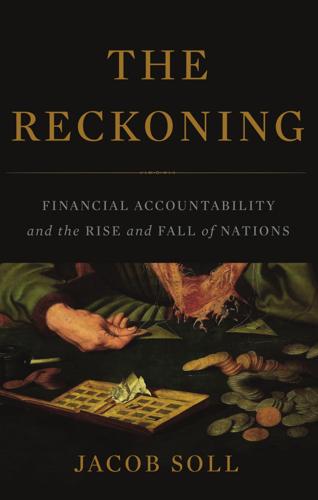
The Reckoning: Financial Accountability and the Rise and Fall of Nations
by
Jacob Soll
Published 28 Apr 2014
On his return, the man chastised him for not investing them to create more wealth: “Thou shouldst therefore have entrusted my money to the bankers, and on my return I should have got back my own with interest.”18 Matthew was not clear on whether it is man’s duty to create bounty on the earth. He warned, “You cannot serve God and Mammon.” Humans were supposed to work hard, make money, but recognize that in the end, it was only Mammon, or sinful greed. Over and over again, Matthew insisted on the separation between the earthly world of sinners and the true nourishment given only by God: “Not by bread alone does man live, but by every word that comes forth from the mouth of God.”
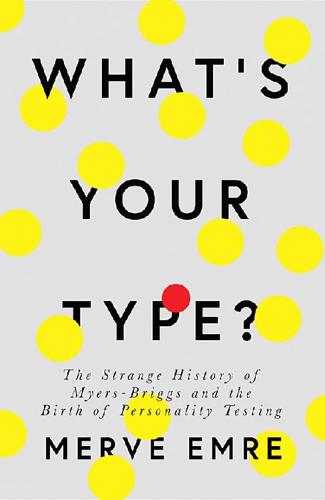
What’s Your Type?
by
Merve Emre
Published 16 Aug 2018
The Briggs-Myers Type Indicator, which Ohmann first purchased from Hay in 1949 to sort Standard Oil’s workers, offered him the perfect solution to preserving the “wholeness of the personality”—a way of introducing people to their true selves and convincing them the work they were doing was a natural extension of how God had created them. The fact that it might also help enhance productivity seemed, to Ohmann, the ideal marriage of “higher and more enduring spiritual values” to the realities of corporate work. In its primordial form, the idea of “work-life balance” was a bargain struck between God and mammon, brokered in large part by the Briggs-Myers Type Indicator, Ohmann told Hay and Isabel. Despite the prescience of Ohmann’s vision—it must have reminded her of her mother’s mystical talk of type—Isabel did not share his sense of spiritual charity when it came to type. The benefits of knowing one’s type did not accrue to all workers equally.
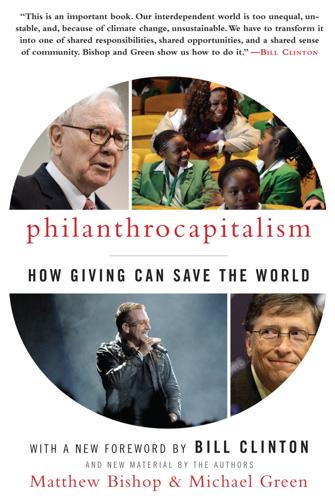
Philanthrocapitalism
by
Matthew Bishop
,
Michael Green
and
Bill Clinton
Published 29 Sep 2008
(So far, Wirth concedes, there have been no other big individual donors to the foundation, since “they all view this as Ted’s deal.”) As ever, Turner is optimistic that the foundation will continue to thrive, despite the lack of hard data to back him up. “It’s so clear to so many people that the U.N. Foundation is a good idea,” he says. SIR JOHN TEMPLETON broke new ground in the spheres of both God and Mammon. It took a peculiar optimism to invest in European stocks in 1939 at the outbreak of the Second World War, particularly when nearly a third of the shares were in firms that were already bankrupt. Yet this sort of high-risk investing at “points of maximum pessimism” characterized Templeton’s career, and made him a billionaire.
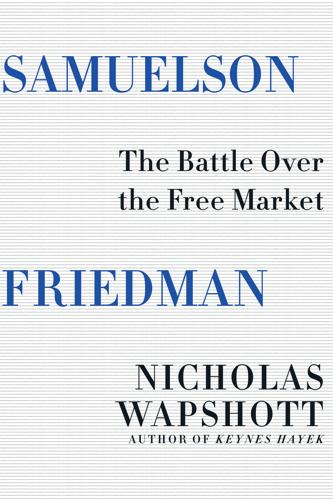
Samuelson Friedman: The Battle Over the Free Market
by
Nicholas Wapshott
Published 2 Aug 2021
Butler, David, and Dennis Kavanagh. The British General Election of February 1974 (Macmillan, London, 1974). ———. The British General Election of 1983 (Macmillan, London, 1974). Bradlee, Ben. A Good Life (Touchstone, New York, 1995). Brown, Gordon, My Life, Our Times (Bodley Head, London, 2017). Buckley, William F. Jr. God and Mammon at Yale (Henry Regnery, Chicago, 1951.) Cannon, Lou. President Reagan: The Role of a Lifetime (Public Affairs, New York, 1991). Campbell, John. Edward Heath: A Biography (Jonathan Cape, London, 1993). Congdon, Tim. Money in a Free Society: Keynes, Friedman, and the New Crisis in Capitalism (Encounter Books, New York, London, 2011).

Posh Boys: How English Public Schools Ruin Britain
by
Robert Verkaik
Published 14 Apr 2018
Johnson is not afraid of brandishing his elitism to enhance his leadership credentials. He exploits his training in classics and rhetoric to convey an aura of a divine right to rule. Duffell recalls one occasion which brought all this together in one act: ‘On the steps of St Paul’s, Boris commanded the Occupy [protest] movement: “In the name of God and Mammon, go!” Was it a lark – Boris doing Monty Python? Or a coded message, announcing someone who, for ten years, heard the King James Bible read in chapel at Eton? Those who don’t recognise this language, it suggests, have no right to be here, so they should just clear off.’ This kind of language is not only out of step with a modern democracy but, in the wrong hands, it can also damage the national interest.
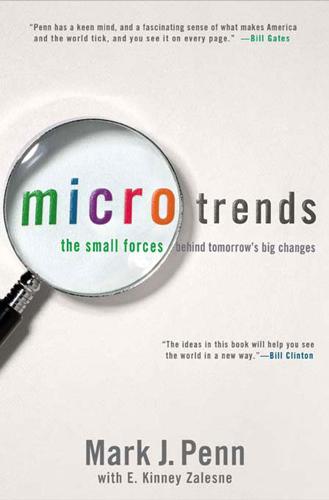
Microtrends: The Small Forces Behind Tomorrow's Big Changes
by
Mark Penn
and
E. Kinney Zalesne
Published 5 Sep 2007
It integrates data from the RAND Terrorism Chronology and RAND-MIPT Terrorism Incident databases, the Terrorism Indictment database, and DFI International’s research on terrorist organizations, and is funded through the U.S. Department of Homeland Security’s Office of Grants and Training. Key articles for this chapter include Bruce Hoffman, “We Can’t Win if We Don’t Know the Enemy,” Washington Post, March 25, 2007; George Packer, “Knowing the Enemy,” New Yorker, December 18, 2006; Daniel Pipes, “God and Mammon: Does Poverty Cause Militant Islam?,” National Interest, Winter 2002; and Alan B. Krueger and Jitka Maleckova, “Seeking the Roots of Terrorism,” Chronicle of Higher Education, June 6, 2003. In particular, the studies on terrorists in Egypt, Lebanon, and Israel are summarized in the latter piece.
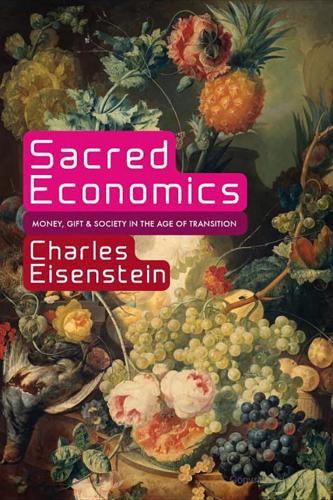
Sacred Economics: Money, Gift, and Society in the Age of Transition
by
Charles Eisenstein
Published 11 Jul 2011
From at least the time that Jesus threw the money changers from the temple, we have sensed that there is something unholy about money. When politicians seek money instead of the public good, we call them corrupt. Adjectives like “dirty” and “filthy” naturally describe money. Monks are supposed to have little to do with it: “You cannot serve God and Mammon.” At the same time, no one can deny that money has a mysterious, magical quality as well, the power to alter human behavior and coordinate human activity. From ancient times thinkers have marveled at the ability of a mere mark to confer this power upon a disk of metal or slip of paper. Unfortunately, looking at the world around us, it is hard to avoid concluding that the magic of money is an evil magic.
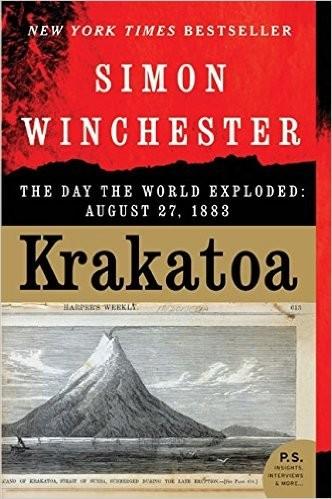
Krakatoa: The Day the World Exploded
by
Simon Winchester
Published 1 Jan 2003
The collisions between Arab-inspired Islam and its agents, and the money-driven,. trade-driven West and hers, have been many and various: those that occurred in the East Indies in the latter part of the nineteenth century are now, when seen from today's perspective, classics of the kind. Islam first came to the East Indies in the thirteenth century, and ironically (considering the present schism between East and West, between spirituality and materialism, between God and Mammon) it came with Arab traders who were in search of business there. There is a grave of a sultan in north Sumatra that dates from 1211. There is another, at Gresik in east Java, which sports designs indicating that it was carved by masons from India in 1419. A late-fifteenth-century mosque in Demak, on the north coast of Java about 300 miles east of Batavia, was clearly the result of architectural compromises between Javanese and Arab builders.
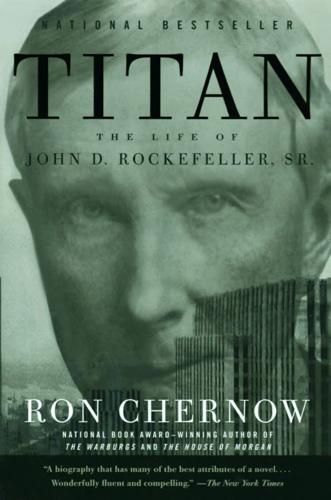
Titan: The Life of John D. Rockefeller, Sr.
by
Ron Chernow
Published 1 Jan 1997
—San Francisco Chronicle “You can read the book as a sympathetic portrait of a complex man, a business history, a legal battle, or simply as a great yarn.” —Business Week “It is hard to imagine a better biography of Rockefeller being written. . . . An enthralling biography of an enthralling person.” —Chicago Tribune “A monumental and mesmerizing biography . . . a fascinating yarn, capturing a man who insisted he could serve God and Mammon.” —The San Diego Union-Tribune “A richly textured and engagingly lively portrait. . . . It is a remarkable story and Chernow tells it with confidence and clarity . . . probably the last word on a genuine titan.” —Daily News “Rockefeller lived one of the great American lives, and Chernow has provided him with one of the great American biographies.”
…
Where Rockefeller differed most from his fellow moguls was that he wanted to be both rich and virtuous and claim divine sanction for his actions. Perhaps no other businessman in American history has felt so firmly on the side of the angels. Critics were quick to spy an oily sanctimony in this servant of God and Mammon and wonder why his religious beliefs didn’t trammel his acquisitive nature. They converted him into a wily Machiavellian or a stock figure from a Balzac novel—the pious, cunning hypocrite who showily attends church on Sunday then spends the rest of the week trampling rivals underfoot. More generous critics argued that he simply led parallel lives, with a complete separation of his public and private selves.
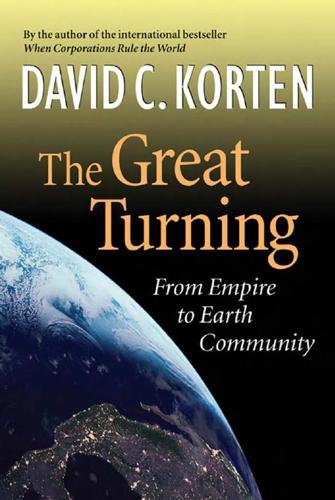
The Great Turning: From Empire to Earth Community
by
David C. Korten
Published 1 Jan 2001
So let us now take a brief look at the formation of the colonial empires of the modern European nation-states and their transmogrification into the institutions of the global corporate empires of the late twentieth century as the ruling class negotiated an end run around the modern democratic challenge to its power and privilege. CHAPTER 7 Modern Empire No man can serve two masters: for either he will hate the one, and love the other; or else he will hold to the one, and despise the other. Ye cannot serve God and mammon. Matthew 6:24 As we look deeper for the soul of capitalism, we find that, in the terms of ordinary human existence, American capitalism doesn’t appear to have one. In the economic sphere, efficiency trumps community. Maximizing returns comes before family or personal loyalty. What seems priceless in one realm may be wasted freely or even destroyed by the other.1 William Greider By the reckoning of Western historians, the modern era began in 1500.
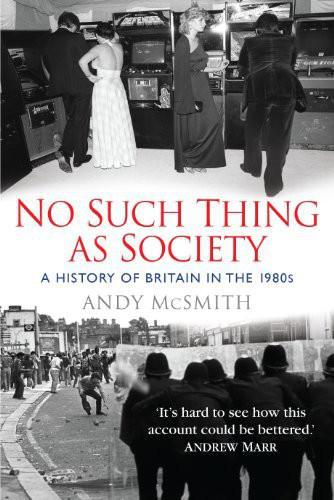
No Such Thing as Society
by
Andy McSmith
Published 19 Nov 2010
As the traders arrived at work, they set their computers to sell shares at whatever price they could get, in the expectation that prices would continue to fall. The strategy depended, of course, on someone else being prepared to bet that shares would rise, but there were no takers, so the computers had to set share prices ever lower to attract buyers. After the crash ‘portfolio insurance’ was deemed to be a bad idea.2 Thus it appeared that both God and Mammon had signalled that capitalism was collapsing, as revolutionary Marxists had been predicting for so long. In that same month, October 1987, a coroner’s jury brought in a verdict of unlawful killing in the inquest into 188 people who had died in Britain’s worst peacetime disaster at sea for nearly seventy years, when a roll-on roll-off car ferry capsized just outside the Belgian port of Zeebrugge on 6 March 1987.
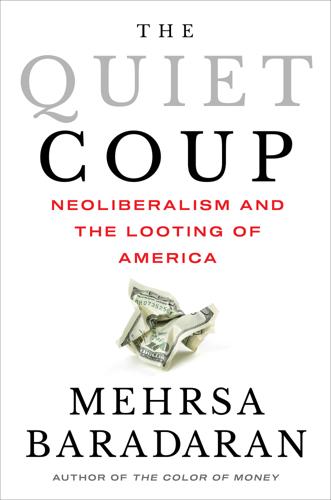
The Quiet Coup: Neoliberalism and the Looting of America
by
Mehrsa Baradaran
Published 7 May 2024
Inside the Trojan horse of family values waited an army of neoliberal deregulatory judges, regulators, and congressmen, who have cut the moral constraints that curbed the market’s worst instincts and the equitable principles required for social cohesion. Now, after a fifty-year struggle to overturn Roe v. Wade, the religious right can claim victory on its core issue. But in that same period, the merger of God and mammon diluted key Christian principles about wealth, greed, and poverty. Instead of a benevolent being that punishes the greedy and protects the poor, the fusionists’ state became the stern father, tightfisted and emotionally distant. FOR NEOLIBERAL purists like Rand, any concession to the pious, no matter how small, was unacceptable.
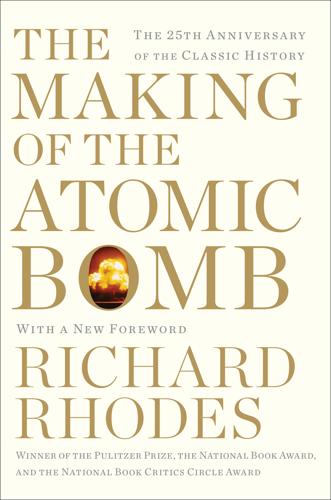
The Making of the Atomic Bomb
by
Richard Rhodes
Published 17 Sep 2012
Rutherford was known in later years as a hard man with a research budget, unwilling to accept grants from industry or private donors, unwilling even to ask, convinced that string and sealing wax would carry the day. He was actively hostile to the commercialization of scientific research, telling his Russian protégé Peter Kapitza, for example, when Kapitza was offered consulting work in industry, “You cannot serve God and Mammon at the same time.”121 The mystery bears on what C. P. Snow, who knew him, calls the “one curious exception” to Rutherford’s “infallible” intuition, adding that “no scientist has made fewer mistakes.” The exception was Rutherford’s refusal to admit the possibility of usable energy from the atom, the very refusal that irritated Leo Szilard in 1933.122 “I believe that he was fearful that his beloved nuclear domain was about to be invaded by infidels who wished to blow it to pieces by exploiting it commercially,” another protege, Mark Oliphant, speculates.123 Yet Rutherford himself was eager to exploit radio commercially in January 1896.
…
Hereafter Rutherford’s healthy ambition will go to scientific honors, not commercial success. It seems probable that J. J. Thomson sat eager young Ernest Rutherford down in the darkly paneled rooms of the Gothic Revival Cavendish Laboratory that Clerk Maxwell had founded, at the university where Newton wrote his great Principia, and kindly told him he could not serve God and Mammon at the same time. It seems probable that the news that the distinguished director of the Cavendish had written the Olympian Lord Kelvin about the commercial ambitions of a brash New Zealander chagrined Rutherford to the bone and that he went away from the encounter feeling grotesquely like a parvenu.
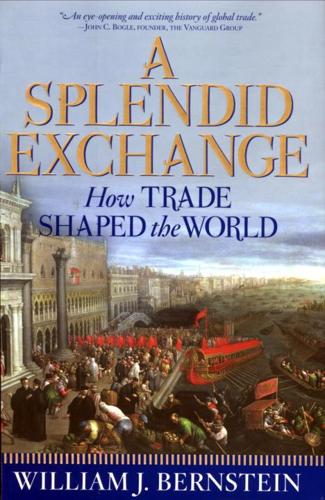
A Splendid Exchange: How Trade Shaped the World
by
William J. Bernstein
Published 5 May 2009
The slave-laden vessels proceeded on the southbound journey to Alexandria (one of whose entrances was called the Pepper Gate) or to Cairo, where they filled their holds with pepper, ginger, cinnamon, nutmeg, and cloves brought by Arab traders from points east. This trade gave the Genoese a financial and strategic leg up against their Venetian rivals. The end of the crusader outposts in the Levant was clearly hastened by the slave-soldiers conveyed by the Genoese, who seemed to have little trouble choosing between God and Mammon. In the words of the historian Andrew Ehrenkreutz, When compared with all the materialistic benefits obtained from the businesslike relations with the Mamluks, the final humiliation of the Cross in the Levant was of small concern to the hard-headed Christians of Genoa.33 Just as quickly as the demand for the Bosphorus-Black Sea slave route arose, it collapsed with the dissolution of the Ilkhan Mongol threat and the fall of Acre and Tyre in 1291.
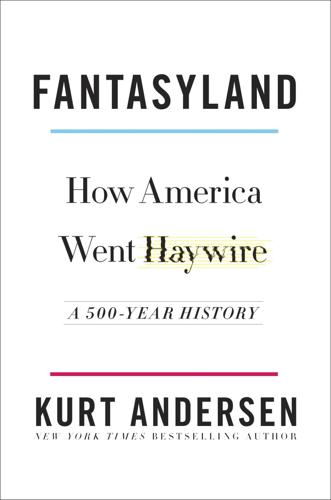
Fantasyland: How America Went Haywire: A 500-Year History
by
Kurt Andersen
Published 4 Sep 2017
What about Jesus, who wasn’t really “blessed financially” and regularly hated on the rich in favor of the poor? When I searched Osteen’s site for references to Mark 10:21 (“Go, sell what you own, and give the money to the poor, and you will have treasure in heaven”) or Matthew 6:24 (“No man can serve two masters….Ye cannot serve God and mammon”) and 19:24 (“easier for a camel to go through the eye of a needle than for a rich man to enter into the kingdom of God”) or any of the brutal first verses of James 5 (“Come now, you rich, weep and howl for the miseries that are coming upon you”), the result was No Results. “God puts desires in your heart,” Osteen says, and “there’s nothing wrong with having a nice home.”
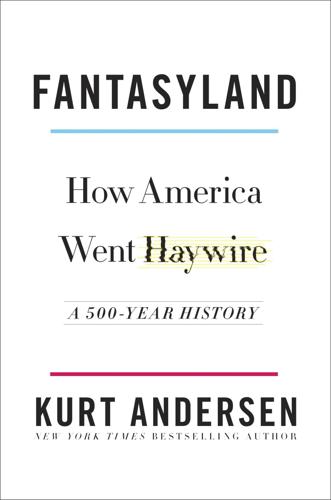
Fantasyland
by
Kurt Andersen
Published 5 Sep 2017
What about Jesus, who wasn’t really “blessed financially” and regularly hated on the rich in favor of the poor? When I searched Osteen’s site for references to Mark 10:21 (“Go, sell what you own, and give the money to the poor, and you will have treasure in heaven”) or Matthew 6:24 (“No man can serve two masters….Ye cannot serve God and mammon”) and 19:24 (“easier for a camel to go through the eye of a needle than for a rich man to enter into the kingdom of God”) or any of the brutal first verses of James 5 (“Come now, you rich, weep and howl for the miseries that are coming upon you”), the result was No Results. “God puts desires in your heart,” Osteen says, and “there’s nothing wrong with having a nice home.”

Stranger Than Fiction: Lives of the Twentieth-Century Novel
by
Edwin Frank
Published 19 Nov 2024
English literature had been a glory in its day—Stein was steeped in it, and she paid homage to it—and it had gone through several phases, from the invention of English as a literary language in the work of Chaucer through the subsequent enlargement of its vocabulary to the muscular and mature syntax and sense of Dr. Johnson. By the nineteenth century, however, English literature had been reduced to mere phrasemaking, saying the expected thing and saying nothing much while having things both ways, a convenient accommodation of God and Mammon that you would expect from an island empire anchored in the harbor of its self-regard. Here Stein, like Gide or Wells, rebels against the balance of the nineteenth-century novel. English fiction, the fiction of a closed circle, had lost its honesty and its power, just as England had lost the power to dominate a world that had begun to expand continuously and violently outward— a world that could be said to have begun with the discovery of America and that looked like America more than anything else.
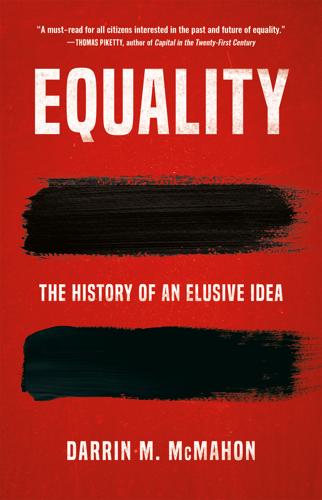
Equality
by
Darrin M. McMahon
Published 14 Nov 2023
Behold the man who warns time and again of the corrupting power of avarice, urging, in his parable of the rich fool, to “be on your guard against all kinds of greed,” because “life does not consist in an abundance of possessions” (Luke 12:13–21). And behold the man who repeats throughout the gospels the message that you cannot serve two masters: God and mammon, God and wealth (Matthew 6:24; Mark 4:19; and Luke 16:13). One must choose. That message had force among early Christians, who sold their land and homes, shared their resources in common, or gave them away in the expectation of Jesus’s imminent return. Breaking bread together, they lived simply, even “communistically,” as radical Protestants at the time of the European Reformation and socialists in the nineteenth century later remarked.
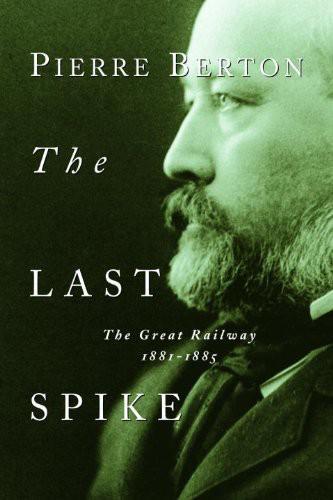
The Last Spike: The Great Railway, 1881-1885
by
Pierre Berton
Published 1 Jan 1971
The Winnipegger jumped to the obvious conclusion that the stranger wanted to buy the property and informed him that it had already been sold at eight hundred dollars a front foot. He “was unable to realize the possibility of any one coming to Winnipeg for any other purpose than to learn how real estate was going.” Certainly, the dividing line between God and Mammon was blurred that hectic winter. Early in February, the trustees of Knox Presbyterian Church succumbed to the craze. The church occupied a valuable corner lot at the junction of Fort and Portage; it had cost twenty-two thousand dollars to build; the land had been secured for a few hundred. The trustees announced that the building would be auctioned off on February 18, 1882, to the highest bidder.
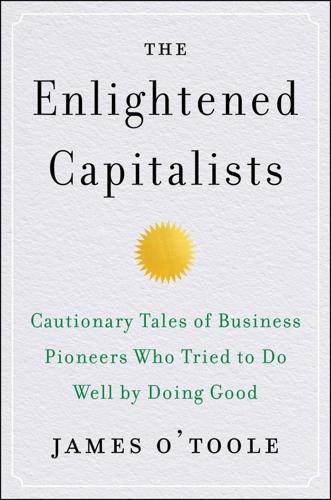
The Enlightened Capitalists
by
James O'Toole
Published 29 Dec 2018
They were on their way financially; yet Tom was unhappy, and wasn’t sure why. After a visit with his Episcopalian priest, he did something unprecedented in the history of business leadership: he enrolled in the Harvard Divinity School as a graduate student in theology, and commuted to his company headquarters in Maine to spend two and half days a week. GOD AND MAMMON Chappell had always been a devote Episcopalian, but he had kept his business interests separate from his spiritual life. That changed in 1986 after a series of disagreements with his hired professional managers over what constituted “success” in their business. They were certain success was measured by profit margins, but Tom wasn’t so sure that was all there was to it.
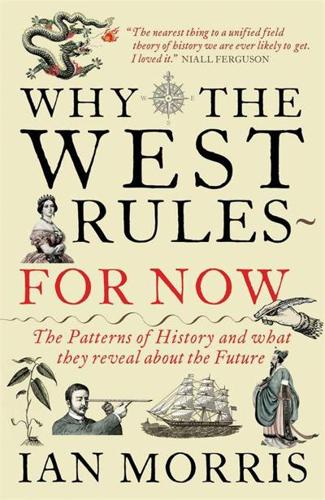
Why the West Rules--For Now: The Patterns of History, and What They Reveal About the Future
by
Ian Morris
Published 11 Oct 2010
The harder his taxmen squeezed, the more problems mounted. Philip’s subjects—breeding like mice in a barn, caught between starvation and the state, and seeing their contributions spent on quarrels in faraway countries with peoples of whom they knew nothing—increasingly fought back. In the 1560s Philip even managed to push God and Mammon into the same camp. The normally stolid Dutch burghers, persecuted by the Habsburgs for their Protestantism and burdened by heavier taxes, went on an altar-smashing, church-desecrating rampage. Losing the wealthy Netherlands to a nest of Calvinists was unthinkable, so Philip sent in the army, only for the Dutch to raise one of their own.
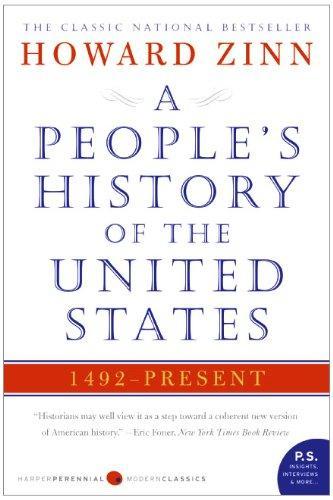
A People's History of the United States
by
Howard Zinn
Published 2 Jan 1977
South Vietnam needs foreign investment to finance these and other developments. . . . She has a large labor pool of talented, industrious people whose cost of labor is far less than Hong Kong, Singapore, or even Korea or Taiwan. . . . I also feel there is much profit to be made there. The combination of serving both God and Mammon had proved attractive to Americans and others in the past. . . . Vietnam can be the next “take off” capitalistic showplace in Asia. In the spring of 1975, everything that radical critics of American policy in Vietnam had been saying—that without American troops, the Saigon government’s lack of popular support would be revealed—came true.
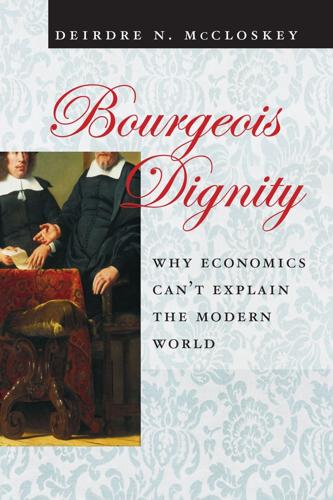
Bourgeois Dignity: Why Economics Can't Explain the Modern World
by
Deirdre N. McCloskey
Published 15 Nov 2011
The job was, as Kadane puts it, “to watch oneself for the smallest sign of deviation from the godly course.”27 Ryder watched himself with the intensity of a Woody Allen character under psychoanalysis, and for the same reason: his modern life in trade, he believed, might corrupt his soul. He wrote—Ryder could have been a writer of hymns—“The dangers numerous are which every saint surround / Each worldly pleasure has its snare if riches do abound.”28 It is an ancient theme, that one cannot serve both God and mammon. The sin of pride in possessions or in success leads away from God, as does pride in anything here below. As Ryder put the matter in another of his hymnlike lines: “If I’m concerned too much with things below / It makes my progress heavenward but slow.”29 “By daily striving for worldly achievements undertaken to honor God,” Kadane writes, “Ryder risked transforming his successes into excesses and his achievements into vanity.”
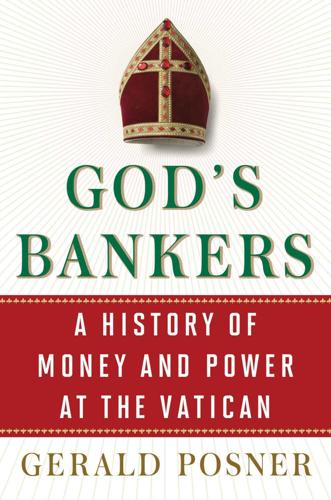
God's Bankers: A History of Money and Power at the Vatican
by
Gerald Posner
Published 3 Feb 2015
Winston, “Chicago Archbishop Under US Inquiry on Funds,” The New York Times, September 11, 1981, 16. See also Andrew M. Greeley, Furthermore! Memories of a Parish Priest (New York: Tom Doherty Associates, 2000), Google ebook edition 2011, 88–89; Hoffman, Anatomy of the Vatican, 64; Alexander L. Taylor III, “God and Mammon in Chicago,” Time, September 21, 1981; Linda Witt and John McGuire, “A Deepening Scandal Over Church Funds Rocks a Cardinal and His Controversial Cousin,” People, September 28, 1981. 34 Ibid.; Barry W. Taylor, “Diversion of Church Funds to Personal Use: State, Federal and Private Sanctions,” Journal of Criminal Law and Criminology 73, no. 3, Article 16, 1205–06.